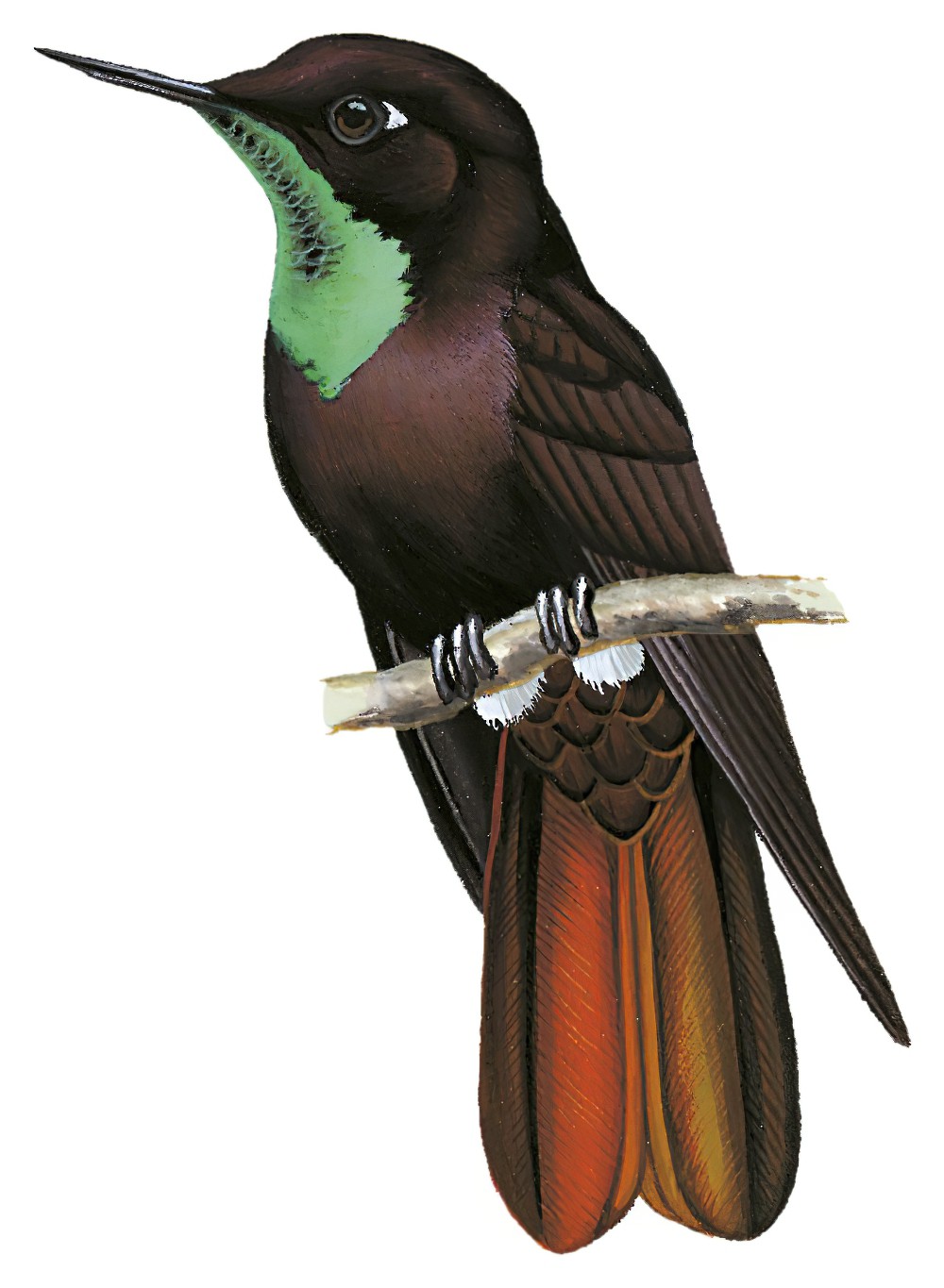Black Metaltail / Metallura phoebe

Black Metaltail
SCI Name:
Protonym: Ornismya Phoebe Rev.Zool. 2 p.17
Taxonomy: Caprimulgiformes / Trochilidae / Metallura
Taxonomy Code: blamet1
Type Locality: Andes of Peru.
Author: Lesson & Delattre
Publish Year: 1839
IUCN Status: Least Concern
DEFINITIONS
METALLURA
(Trochilidae; Ϯ Black Metaltail M. phoebe) Gr. μεταλλον metallon metal; ουρα oura tail; "METALLURA, gen. nov. Char. gen.— Rostrum rectum, sublongum. Plumæ molles sericeæ. Cauda subgrandis, rotundata. Gula et rectrices infra tanquam metallum expolitum luminosæ. Alæ subgrandes. Tarsi nudi. Pedes subgrandes. Digitus et unguis postici digitum et unguem medios longitudine æquantes vel superantes. ... The species are— Trochilus cupreocauda, Gould. Trochilus æneocauda, Gould. Trochilus Alardi, Bourc. Trochilus smaragdinicollis, D'Orb. Trochilus Williami, Bourc." (Gould 1847); "Metallura Gould, Proc. Zool. Soc. London, pt. 15, 1847, p. 94. Type, by subsequent designation, Ornismya cupreicauda Gould = Ornismya phoebe Lesson and DeLattre. (G. R. Gray, Cat. Gen. Subgen. Bds., 1855, p. 22.)" (Peters 1945, V, 118).
Var. Meltalura.
Synon. Laticauda, Lavinia, Urolampra.
phoebe / phoebei
● Gr. myth. Phoebe, brightness of the moon, a name for the goddess Diana (syn. Chlorostilbon mellisugus, Metallura, syn. Myiarchus sagrae).
● Phoebe Leicester (1905-1989) niece of English naturalist and collector Robert "Robin" Kemp (Paul Scofield in litt.) (syn. Illadopsis fulvescens iboensis, syn. Prosthemadera novaeseelandiae).
● Onomatopoeic name; "Most distinctive feature, a spoken, not whistled, phoe-be, with accent sometimes on first, sometimes on last syllable." (Forbush & May 1939); ex "Dusky Flycatcher" of Pennant 1785, "Small or Common Phoeby Bird" of Ashton Blackburne in Pennant 1785, and "Phoebe Flycatcher" of Latham 1787 (Sayornis).
UPPERCASE: current genus
Uppercase first letter: generic synonym
● and ● See: generic homonyms
lowercase: species and subspecies
●: early names, variants, mispellings
‡: extinct
†: type species
Gr.: ancient Greek
L.: Latin
<: derived from
syn: synonym of
/: separates historical and modern geographic names
ex: based on
TL: type locality
OD: original diagnosis (genus) or original description (species)












